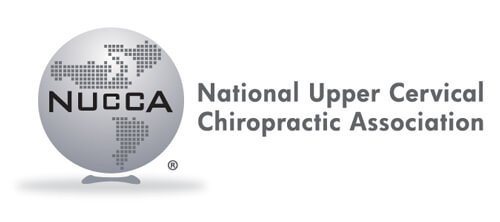It’s Not “Just A Concussion”
Have you Experienced a Concussion?
Have you ever had a concussion? Or suspected you might have had one? A concussion is really any injury to the head that affects your normal brain function. Many people experience different intensities of concussions which are often created by:
- Car accidents & collisions
- Hitting your head
- Sports injuries (football, hockey, rugby, basketball, baseball, soccer & horseback riding)
- Falling down stairs
- Slipping on ice
Concussions and traumatic brain injuries have become almost common knowledge since their rise in publicity due to movies like the 2015 “Concussion” starring Will Smith. In this movie we see that concussions are ever so prevalent in contact sports like football and how this devastating injury continues to cause severe and debilitating problems long after athletes have been cleared to go back and play. In fact, the NFL has more recently changed it’s rules to better be able to protect players from concussions.
The Missing Link with Concussions
Whether it’s on the playing field or in your doctor’s office, the protocol for assessing and diagnosing concussions has become routine. And for most concussions, the treatment is rather routine as well. Rest, reduce activity, limit screen time, etc. However, concussions almost always leave behind a massive problem that goes undiagnosed and uncorrected.
The vast majority of those who experience a concussive brain injury are also left behind with an upper neck injury. This injury occurs in the Upper Cervical Spine, where the head and neck are joined together.
To look at the numbers, researchers have found that the average concussion takes 96 G’s of force. However, the average whiplash neck injury takes only 4-6 G’s of force. This means that almost 95% of concussive head injuries also lead to an upper cervical neck injury!
Upper neck injuries lead to an enormous list of problems as well. To name a few:
| · Headaches | · Migraines |
| · Neck pain | · TMJ dysfunction |
| · Nerve pain | · Tingling & numbness |
| · Memory issues | · Brain fog |
| · Difficulty concentrating | · Depression |
| · Difficulty sleeping | · Anxiety |
| · Vertigo |
Why Should I Worry About My Neck After A Concussion?
To start, your head weighs approximately ten pounds and is specially designed to sit perfectly on the central axis of the neck. This perfect alignment allows for nerve signals to flow freely between the brain and the body. Following a concussive blow, the head may be compressed, twisted, or bent on top of the neck. This causes the head to shift off of its central axis, where it will sit “crooked” upon the neck. This crooked position blocks the flow of brain signals, leading to a disrupt in brain/body communication.
This is like a natural disaster happening inside the body. What you now experience is a brain and body that are out of control, leading to a laundry list of symptoms which are bulleted above. These symptoms mean there is a severe problem that has been left behind due to your concussion.
Can This Problem be Corrected?
Fortunately, there is a specialized technique known as Upper Cervical Care, which focuses on identifying this unique misalignment of the head on the neck. An Upper Cervical Chiropractor, also known as a NUCCA Doctor, focuses on identifying and correcting this misalignment.
A NUCCA specialist will be able to perform a detailed evaluation to identify if you are suffering from a head and neck misalignment. Using precise upper cervical x-rays, a NUCCA doctor is able to give a gentle and precise correction to the top of the spine, removing the misalignment. This restores the proper nerve flow and communication between the brain and body, allowing the body to heal and symptoms to finally alleviate.
If you or a loved one has experienced a concussion and were left with post-concussion symptoms, we encourage you to find your local NUCCA Chiropractor to receive a detailed evaluation that may change your life. Click the icon for the NUCCA directory. If you need any further recommendations, please email us at DrM@mollandspinalcare.com.
Thanks for taking the time to read this article. If you felt it was helpful or know someone else who would benefit from reading it, please share it in order to help others!
Molland Spinal Care doctors are Eatontown Upper Cervical Chiropractors trained by the National Upper Cervical Chiropractic Association (NUCCA). Our NUCCA Clinic has helped many people find natural relief from post-concussion syndrome in Eatontown, New Jersey. As NUCCA Chiropractors we are uniquely trained to correct problems in the Upper Cervical Spine (upper neck). This vital area is intimately connected to the central nervous system and problems in this area have been shown to be an underlying cause of a variety of different problems. More information can be found on our website at https://www.mollandspinalcare.com
Resources and Useful Links
- Post Concussion Syndrome Journal
- Cameron MM, Vernon H, et al. The Role of the Cervical Spine in Post-Concussion Syndrome. The Physician and Sports Medicine. 2015.
- Mild Traumatic Brain Injury Jouranl
- Ellis, Leddy, Wiler. Physiological, vestibule-ocular, and cervicogenic post-concussion disorders: an evidence-based classification system with directions for treatment. Brain Injury. 2014.
- Sports Medicine Journal on Concussion
- Leddy J. Brain or Strain? Symptoms Alone Do Not Distinguish Physiologic Concussion from Cervical/Vestibular Injury. Clinical Journal of Sports and Medicine.
- Mayo Clinic
- NUCCA Association


